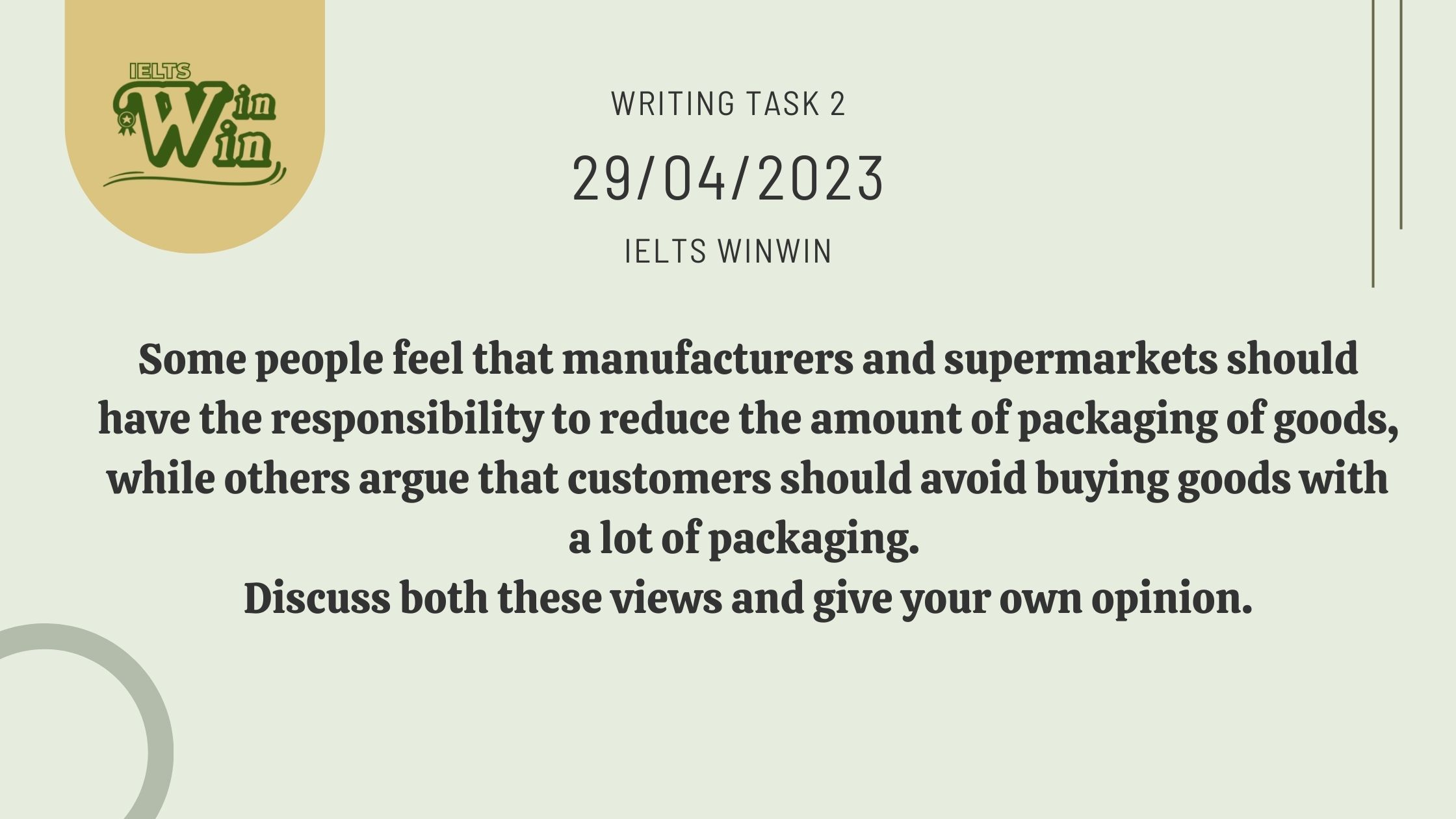Some people feel that manufacturers and supermarkets should have the responsibility to reduce the amount of packaging of goods, while others argue that customers should avoid buying goods with a lot of packaging. Discuss both these views and give your own opinion.
Some argue that the curtailing of excessive packaging in goods should be initiated by the corporations that make and sell them, while others uphold that it is consumers’ choices that matter. Dissecting both perspectives, although the former validly entails that the corporate normalization of overpackaging has jeopardized the average consumer’s agency to ethically consume, I think buyers’ accountability should dominate by targeting business profits through conscious purchasing.
To commence, people assign the responsibility of reducing product packaging to companies for many reasons. The most significant one rests on the premise that in economies where most merchandise is mass-produced and retailed by corporations, consumers’ shopping habits are shaped by these companies’ marketing, including their tendency to buy overpackaged products. For example, iced beverages in Korean convenience stores are sold in two separate plastic cups: one for the drink, and the other solely for ice cubes. As overpackaging is often the default and most average shoppers are not environmentally aware enough to question this system, the status quo will remain if businesses do not change their ways.
Nevertheless, others consider customers should still take matters into their own hands. First, it is assumed that all businesses operate upon profit interest, and tangible changes could only be created if profits are affected. Hence, it is impractical to expect companies to suddenly minimize packaging when the products are still generating income. Instead, by boycotting goods from corporations that harm the environment, consumers could pressure them into adopting positive product features, like fewer wrappings. Furthermore, since the usage of overpackaged products many times stems from consumers’ false expectations of better aesthetics and hygiene, they have to bear the responsibility of self-education to debunk this myth and make environmentally conscious choices.
In conclusion, while companies’ involvement should be encouraged to reverse the overpackaging trend they started, I believe buyers should start taking more initiatives. This is because customers’ purchasing patterns are directly tied to companies’ profits, which can be used along with a higher sense of environmentalism to coerce manufacturers and retailers into producing and selling minimally packaged products.
New words:
✨Curtailing: giảm bớt
✨Entail: bao gồm
✨Jeopardize: gây hại, gây nguy hiểm cho
✨Agency: quyền tự quyết
✨Business profits: through conscious purchasing.
✨Assign the responsibility of sth to sb: quy trách nhiệm về cái gì đó cho ai
✨Rest on: dựa trên
✨Premise: tiền đề
✨Merchandise: hàng hóa
✨Mass-produced: sản xuất hàng loạt
✨Default: mặc định
✨Status quo: hiện trạng
✨Take matters into their own hands: tự tay xử lý
✨Boycotting: tẩy chay
✨Product features: tính năng, đặc điểm sản phẩm
✨Aesthetics: thẩm mỹ
✨Hygiene: vệ sinh
✨Debunk a myth: lật tẩy một lầm tưởng


